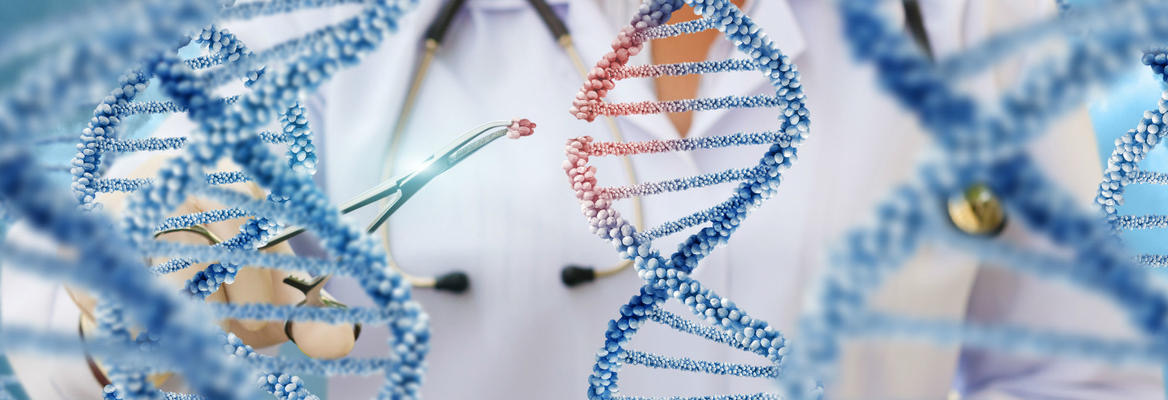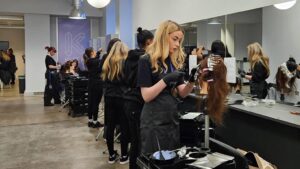
The Basement Gym + Studio opens in Camden Town
Camdenist readers get 50% off their first month’s membership, too

The world’s largest festival of philosophy and music is returning to Kenwood House, 18-19 September.
Camdenist readers get 20% OFF the price of all tickets. Just uses the code CAMDENIST20 at the checkout and we’ll see you there.
How do growing embryos make that first decision to make ovaries rather than testes? How does that happen on a molecular level? And what happens when that goes wrong? These are some of the questions Güneş Taylor tries to answer in her work investigating the genes responsible for sex determination during embryonic development.
As someone who struggled with biology GCSE, I ask Güneş to explain this field and she kindly repackages the basics in a way I can begin to understand.
“Your genome is basically a whole load of DNA,” she says. “It’s like an instruction manual. There are volumes and volumes; all the information necessary to take you from being one cell to being several trillion walking around as you are now. That’s not me assessing you for size by the way!” she chuckles, as if that’s exactly what she’s doing, “that’s just an average number.”
With so many volumes, different parts of the instruction manual are only relevant at certain points in time. “It’s a bit like if you have a whole load of books on your shelf, you’re probably not reading them right now. Chromatin is the name that we give to the system that files stored whole DNA in a state of differential access. Access is important because if a gene is accessible, it can be turned into a protein and therefore do something. Genes that are not accessible are less likely to be doing anything, just like how it’s quite hard to read a book when it’s shut and on your bookshelf.” Chromatin remodellers are the proteins that facilitate that mechanism. “They are the ones that actually move the physical structures that the DNA is wound around, making them differentially accessible. A bit like librarians.”

The nature of her work means that Güneş is fascinated with what she describes as “the emotional, ideological and intellectual relationship” that we have with our genomes. The intellectual relationship recognises that the genome is a collection of molecules, that it’s inheritable, and so on. “But the significance of a genome to a person doesn’t come from those molecules, it’s to do with what we associate with them. What does that mean for us as people, and what does that mean about family? That’s where we really interact with the concept of the genome.”
This is what she recognises as the emotional relationship. “How do people feel when you tell them that a large proportion of their being can be attributed to something that was there from the second they were one cell? How do we process that kind of thing?” The ideological relationship has more political and philosophical implications and emerges from the emotional and intellectual. “What does this actually mean about me in relation to society and everything else? And how do I choose to intellectualise that in terms of politics?” It’s clear from early on in our conversation that science, for Güneş anyway, doesn’t just belong in a lab but rather collides loudly with our understanding (or lack thereof) of what it means to be human.
She describes science, in its truest form, as a methodology of thinking. “A lot of people are scientists, not just the people in research laboratories. You can be a scientist if you employed a scientific method to address a question.” For Güneş, science is also freedom and fun and it’s completely changed her life. She was fifteen when she decided to be a scientist and leave her home in Turkey to live with her step-grandparents near Bristol. “I decided I was going to pursue this. And I went to university, did human genetics, I did a PhD and I’m the postdoc I always wanted to be now.” She describes how science has shaped over half her life. “Pursuing this has made me far more resilient, gritty and focused. I’ve had to become much stronger than I was before, in a good way. Rising to that challenge every day is something that can be exhausting and tiring, but it is also incredibly rewarding.”
As a journalist working from home, whose experiments begin and end with what I’m going to rescue from the fridge for lunch, I want to know what a typical (if it can even be called that) day in the life of a postdoctoral training fellow at the Francis Crick Institute looks like. “I have the best job in the world,” she grins, “because I get to answer questions that I think are interesting and our days are very varied.”
At the moment, Güneş is working on finding a molecular mechanism that is crucial for the cells that make up the ovary to make that decision. “It’s really relevant to humans as well. There’s a human syndrome that causes super premature ovarian failure associated with one of these genes that I’m studying. I’m honing in on what it’s doing. If I crack that I might be able to shed some light on what happens in terms of that condition, which also tells us something about how normal ovarian depletion happens in everybody else. It’s quite an applicable piece of information, or at least I hope it’s going to be.”
There is some speculation, predominantly from non-scientists, that gene editing and modification have dangerous societal implications. Has anyone ever asked her if she’s playing God? “No, no one’s ever said that to me. I’m not sure my inner megalomaniac could handle it too well if they did!”
What does Güneş have to say about the technology? “I’m completely partisan, I think it’s the best thing that’s ever happened to science. Does it sometimes get used inappropriately? Yes, that’s the same with any tool. I think what’s often forgotten, and this is my little drum that I bang, is that genome editing has improved the precision with which scientists can do experiments. So, the clarity of answers that scientists can derive, at least in terms of biology, and development especially, has improved. If you have improved information about how human beings develop, for example, you’ll be in a much better place to make educated guesses and experiments for conditions that we care about. It’s for the science that the benefits are the most obvious and tangible and real.”
I ask Güneş what she thinks the future of reproduction looks like. “How long have you got?” She pauses. “Modern society as we know it is premised on the advancement of contraceptives. Without contraceptives, women aren’t free to be part of the labour market. That’s basically what stops women from being pregnant all the time. We already live in a world that’s shaped by that.” Along with the development of contraceptives, women are increasingly choosing to become mothers later in life. “There are certain limits, currently anyway, to how ovaries function and how long they are able to do what they need to do. The future of how we reproduce and the conditions under which we do that is going to shape how our society unfolds.”
Güneş Recommends
There’s a book called Man’s Search for Meaning by Viktor E Frankl. It’s a heavy book but I think everyone should read it. He was a psychiatrist who survived Auschwitz and the book is about his observations of the differences between the people’s mindsets who survived and those who didn’t. We should never ever go into that kind of world again, where those kinds of experimental conditions are generated, obviously. But I think it is immoral to not make use of such hard-earned knowledge.
What has her work taught Güneş about humans? Is she more or less worried about us the more she learns? “I’m an eternal optimist. But I’m also a pragmatist. Occasionally I do get quite worried. I’m particularly concerned by certain trends in our society that haven’t completely manifested yet.”
She explains how part of being a scientist means learning to make predictions about where certain trajectories are headed. “A healthy scientific mind understands that a prediction is just that, that causation and correlation are very different things. Generally, I don’t think humanity’s… What’s the technical term for screwed?” She laughs. “It’s not over until it’s over. I have faith it’s going to be okay. But I am really worried that people don’t seem to hold themselves to intellectually rigorous standards. I think people are so worried and stressed that they don’t do themselves justice. The damaging thing about humans is that it’s less what they think and more what they do that impacts other people. If your actions are not really thought through it almost doesn’t matter. But it obviously does to some extent and that ‘almost’ is what gives me hope. It means that it should still be possible to get people to engage.”
And what does she wish more people knew? “Observation is intrinsically about difference, and it is important in science as the starting point of all experimentation and hypothesis. So, it’s okay to make observations and state differences between things but there is a difference between observing differences and judging things as being lesser. That is something that I think people have forgotten.”
Finally, I ask her the question I know everyone is secretly dying to know: would Güneş rather be a testis or an ovary? “I’m going to stay true to myself, and say I’d be an ovary. Testes are cool, but it’s pretty frenetic in there, there’s a lot of chaos. Constant production to make it, ship it out. It’s high-octane stuff. Whereas it takes a lot longer for an egg to get to fertilisation. My mum was thirty when I was born so I’m from an egg that was in long-term storage for twenty-nine years, matured for a year, and then got fertilised. How’s that for a fun fact?”
The world’s largest festival of philosophy and music is returning to Kenwood House, 18-19 September.
Camdenist readers get 20% OFF the price of all tickets. Just use the code CAMDENIST20 at the checkout and we’ll see you there.

Camdenist readers get 50% off their first month’s membership, too

A brand new hairdressing and barbering academy has landed in Camden Town and is now seeking style-conscious models and enthusiastic trainees

We speak to founder, Sol, about bringing the studio to Kentish Town

Explore the neighbourhood’s brand new neighbourhood